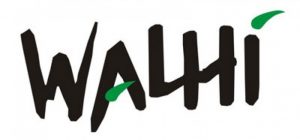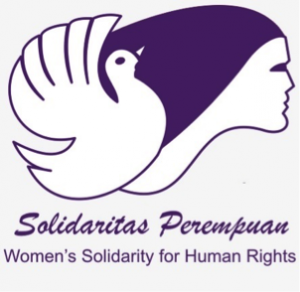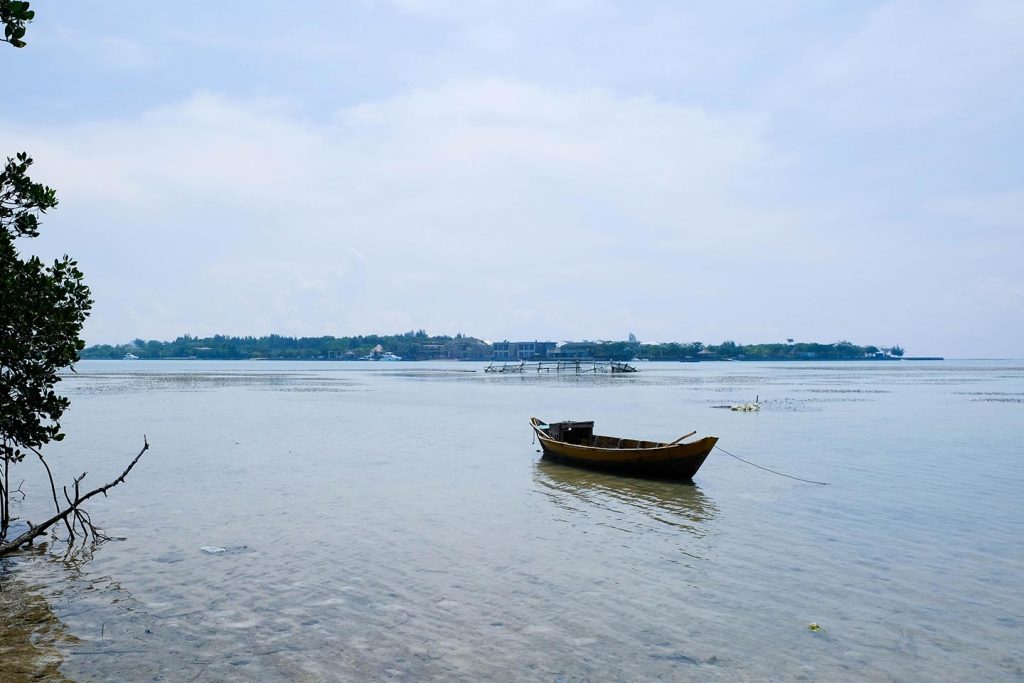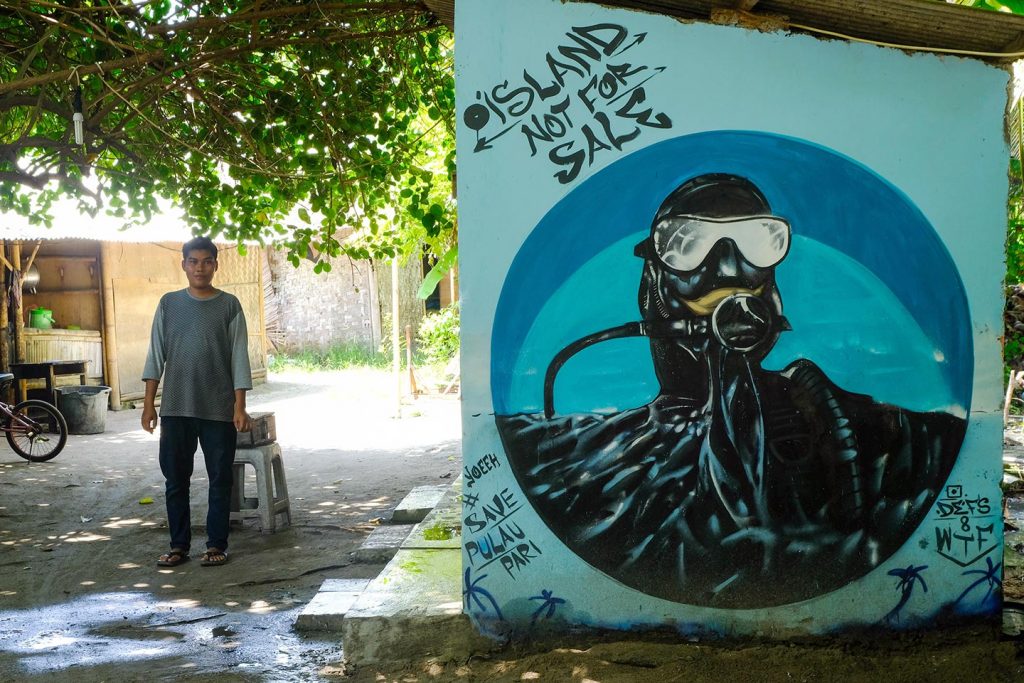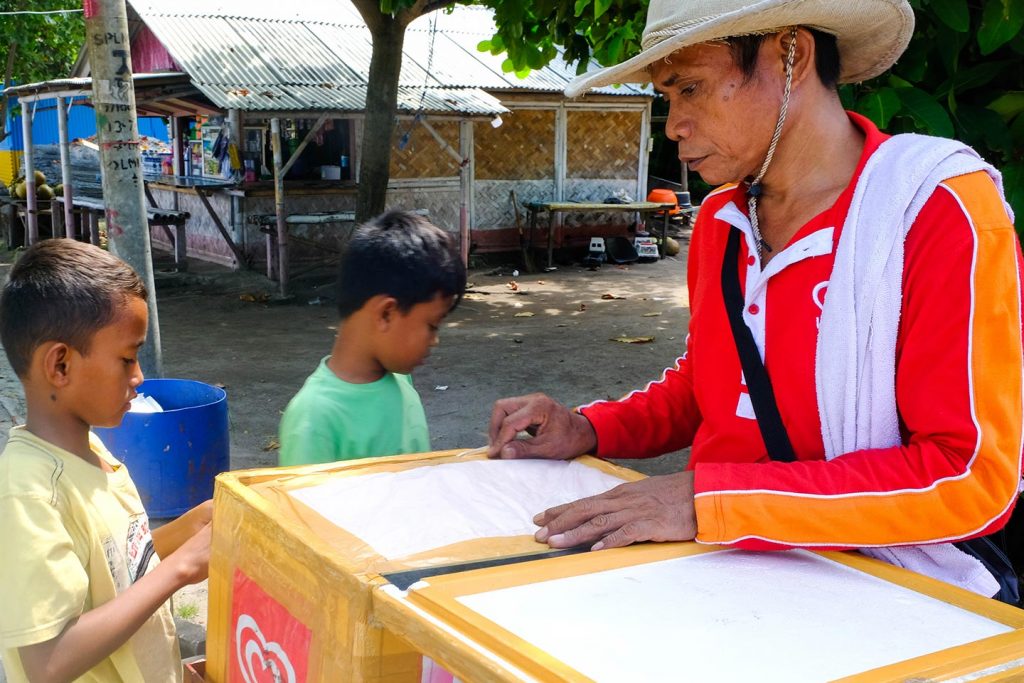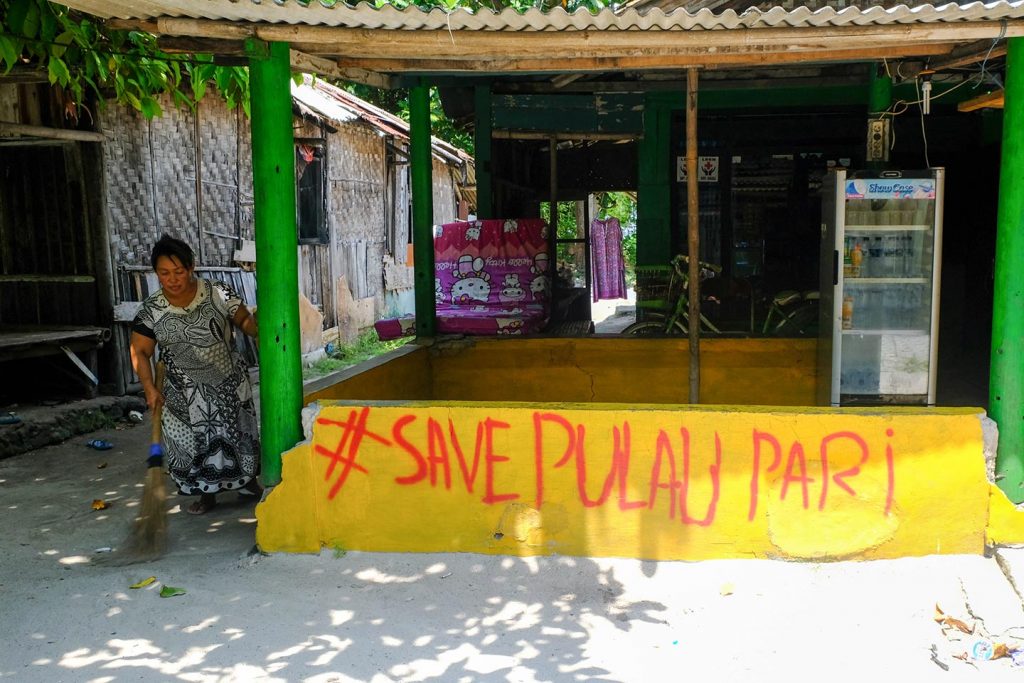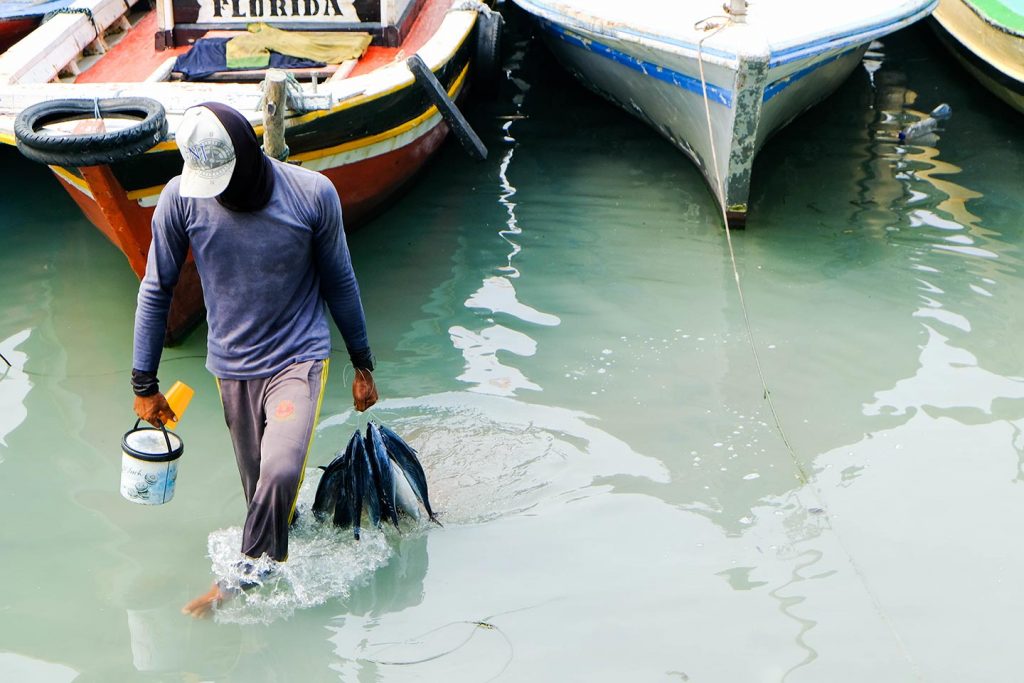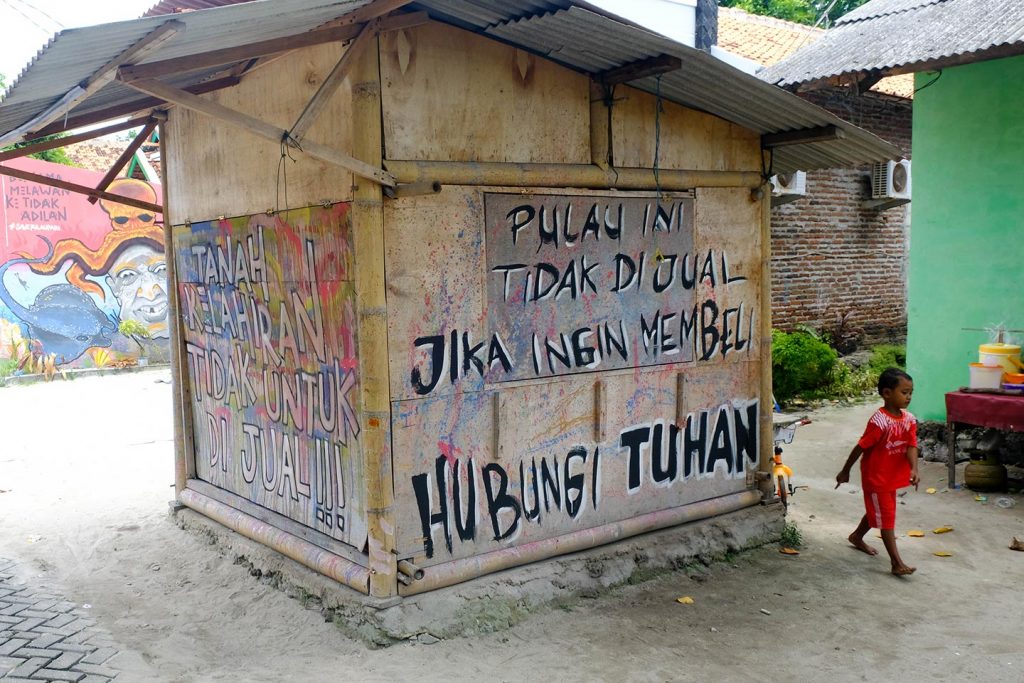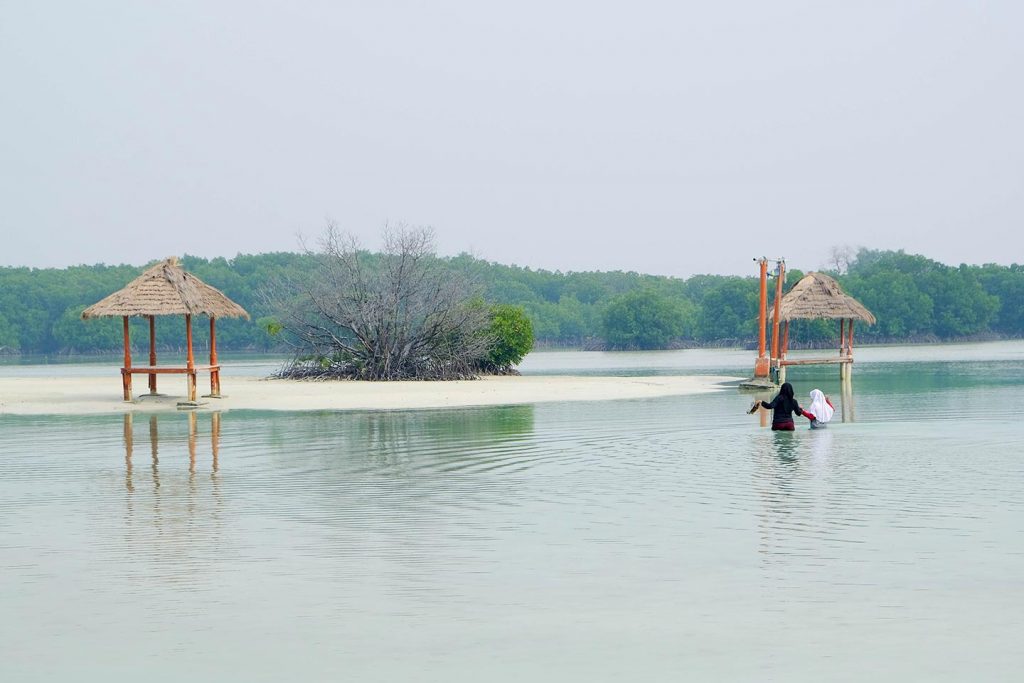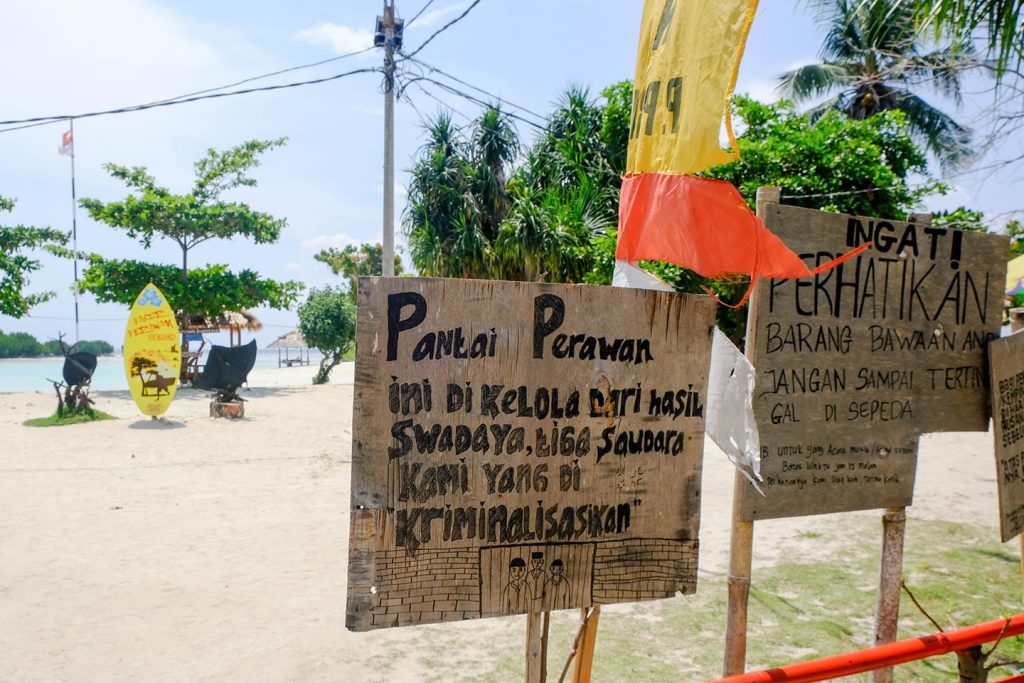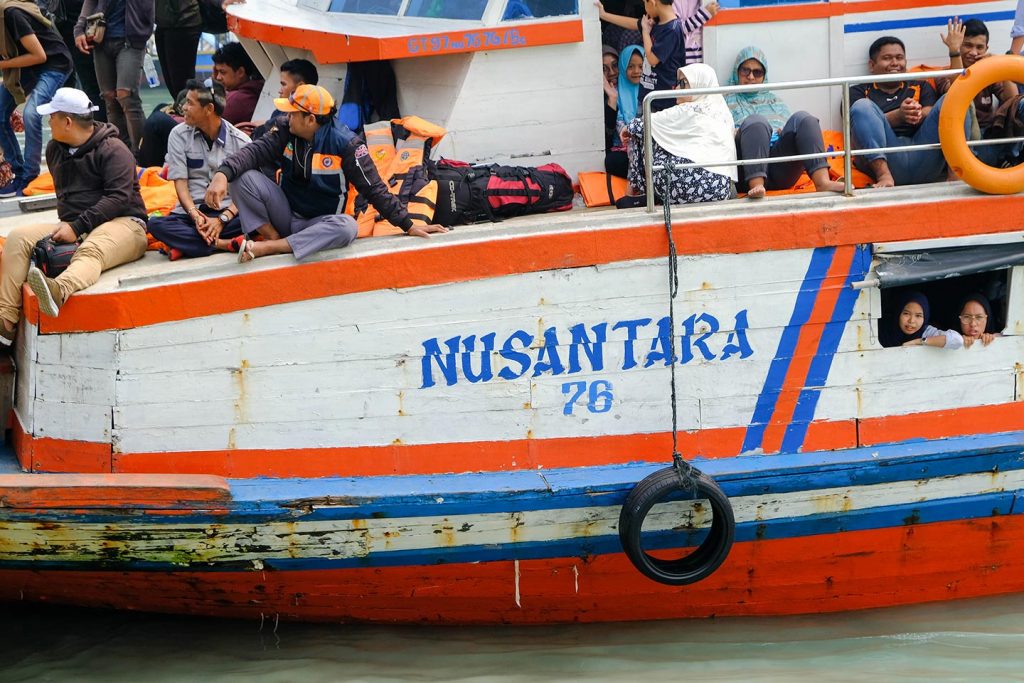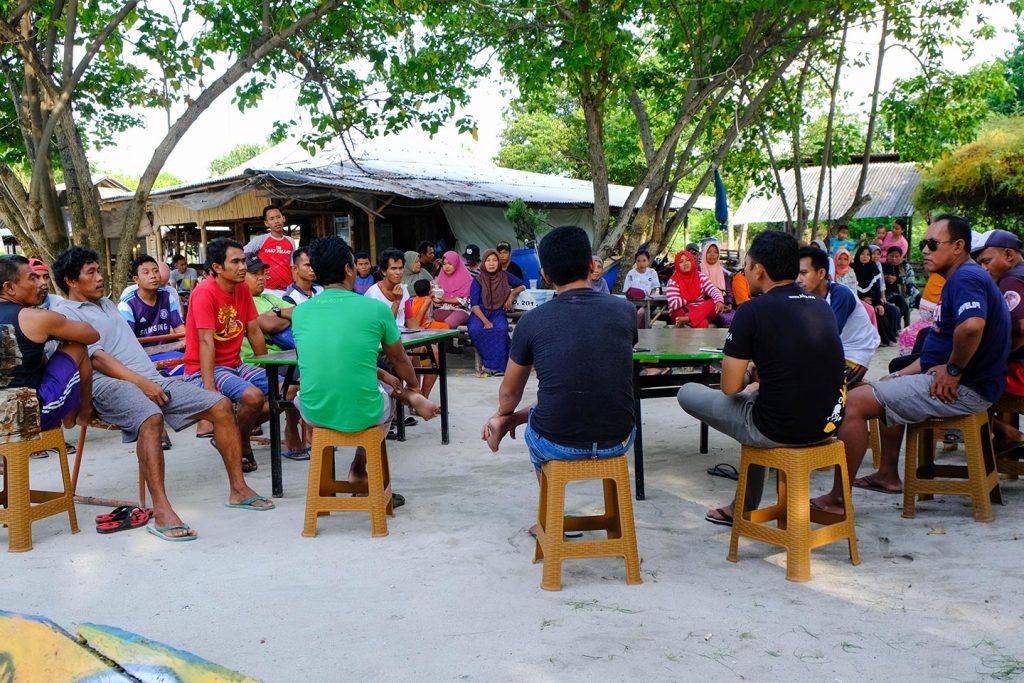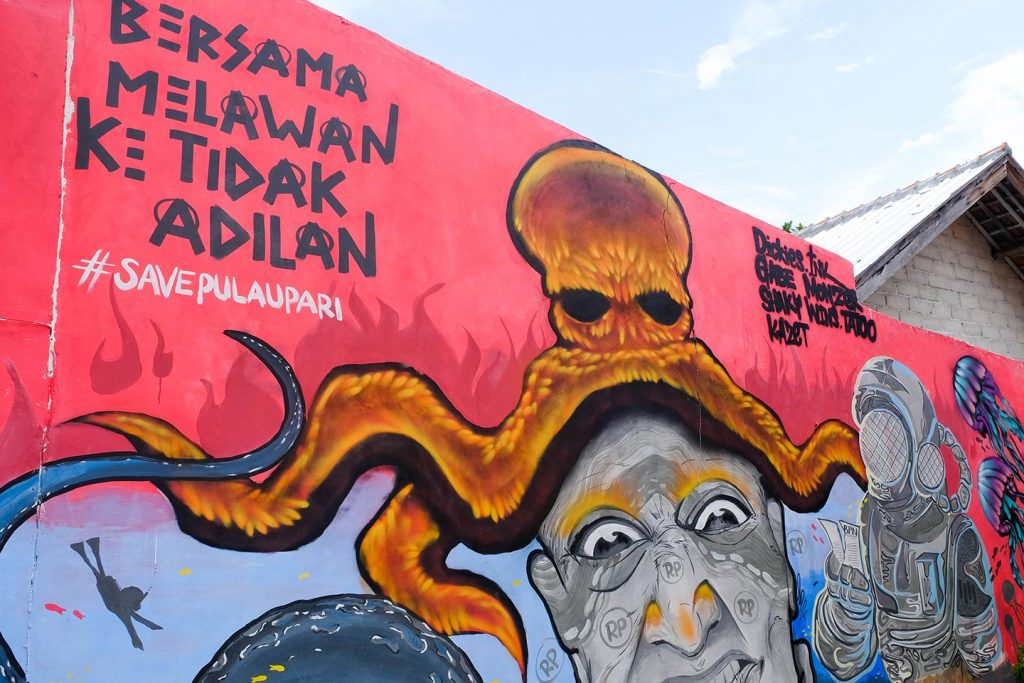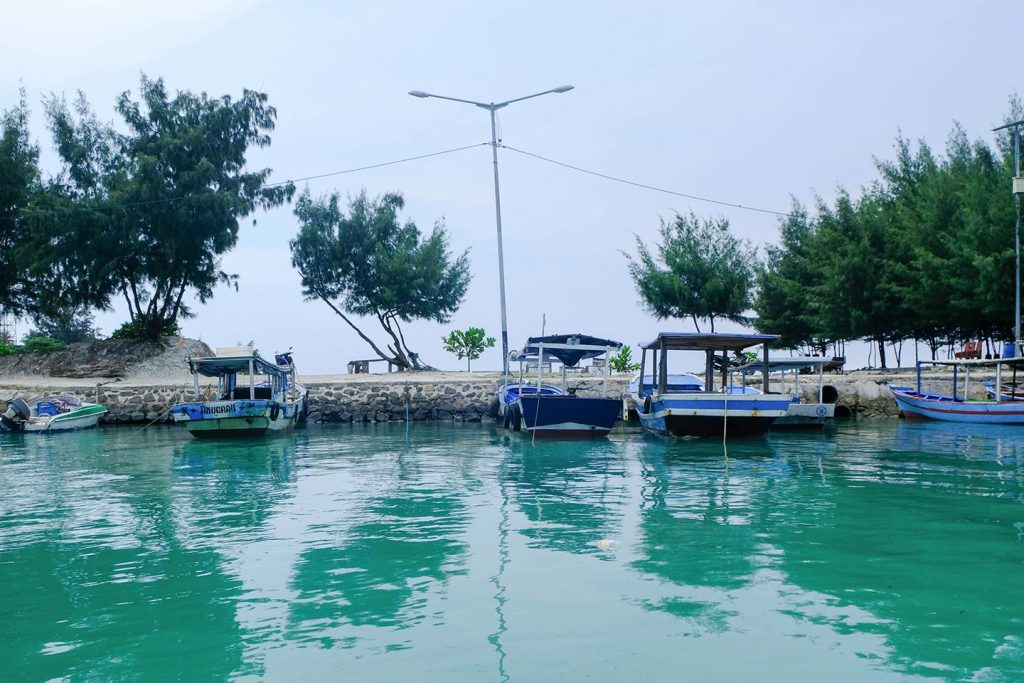Field and organising partners: KIARA, WALHI, Solidaritas Perempuan
TRAVEL AND LOGISTICS:
Participants will travel to Pulau Pari by boat from Muara Angke Harbour in North Jakarta. The journey takes around one hour to the port by bus then 90 minutes to the island by boat. There are no hotels on the island; participants will sleep in small guesthouses and at the homes of residents. Indoor bathrooms have cold water showers and squat toilets. Food generally consists of rice with fish or tempe (soybean), vegetables, and chilli sauce. Cold drinks and snacks are available for purchase.
WHAT TO BRING
Sunscreen/sun protection, mosquito repellent, motion sickness medicine, refillable water bottle, tissues/toilet paper, towel, sandals/flip flops, swimming costume.
Languages: Indonesian, English, Spanish and French
Maximum participants: 30
Difficulty: 2/5 **
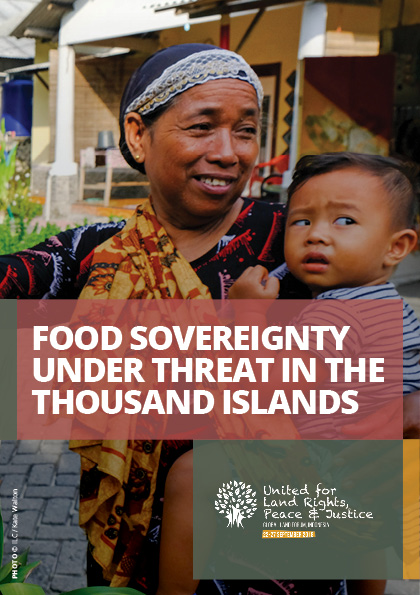
BACKGROUND
"We believed that because we lived here,
we didn't need documents [land certificates].
We never thought the land would be taken
out from under us."
Pak Sulaiman / Head of the Community
Pulau Pari (Pari Island) is one of 108 islands lying 45km off the north coast of Indonesia’s capital city, Jakarta. Collectively, they are known as the Thousand Islands, and include sandbars, coral reefs, and mangroves. The islands all rely upon one another for different needs: many do not have fresh water, while others have no fertile land for growing vegetables. Around 300 households with a total of 1,300 residents live on Pulau Pari. The island grows only breadfruit, which is traditionally eaten as the main carbohydrate in a meal. The island once had a thriving seaweed industry and exported up to 20 tonnes a year to Japan, but the growing areas were almost entirely destroyed by a change in ocean currents when a neighbouring island (Pulau Tengah or Pulau H) was bought by a private investor and turned into a resort, complete with land reclamation and multiple piers for yachts. Pulau Tengah was previously uninhabited and was used to plant fruits and vegetables for the residents of Pulau Pari; access is now off-limits.
In 2010, the islanders – who primarily work as fisherpeople – decided to open up to island to tourism as a response to the loss of the seaweed industry; up to 1,500 people now visit the island every weekend. Since 2014, a company by the name of PT Bumipari Asri has begun claiming they own 90% of Pulau Pari and intend to turn the island into a resort. It is unclear how the company came to own the island – all is known is that residents gave the village heads their land ownership certificates in the 1980s for updating, and never saw them again. The company forbids any alteration to or improvement of the land, including the erection of new buildings and the maintenance of beaches for tourism. Since 2015, four people have been arrested and jailed for up to six months for entering without permission and maintaining a beach without permission. Residents live under constant threat of eviction and do not know where they will live if forced to leave.
PARTICIPANTS
WILL LEARN
ABOUT...
- Corporate land grabbing on small islands;
- Community management of natural resources for livelihoods and tourism;
- Food sovereignty and inter-island dependency (land and sea);
- Criminalisation of peasants and fisherpeople;
- Impact of environmental and climate change on coral reef ecosystems and small islands.
IN
PARI
ISLAND
PARTICIPANTS
WILL...
- Attend seminars on community land management rights in the context of small islands, land grab and agrarian conflict on small islands;
- Take part in a discussion about the island, its management, and the criminalisation of its residents;
- Participate in two-way learning and sharing sessions, with the idea that not only will participants learn from the residents of Pulau Pari but that residents will also learn from the field trip participants;
- Visit the island’s main tourist sites (Virgin Beach and Star Beach) and livelihood sites (mangroves, reefs, and former seaweed growing area).
